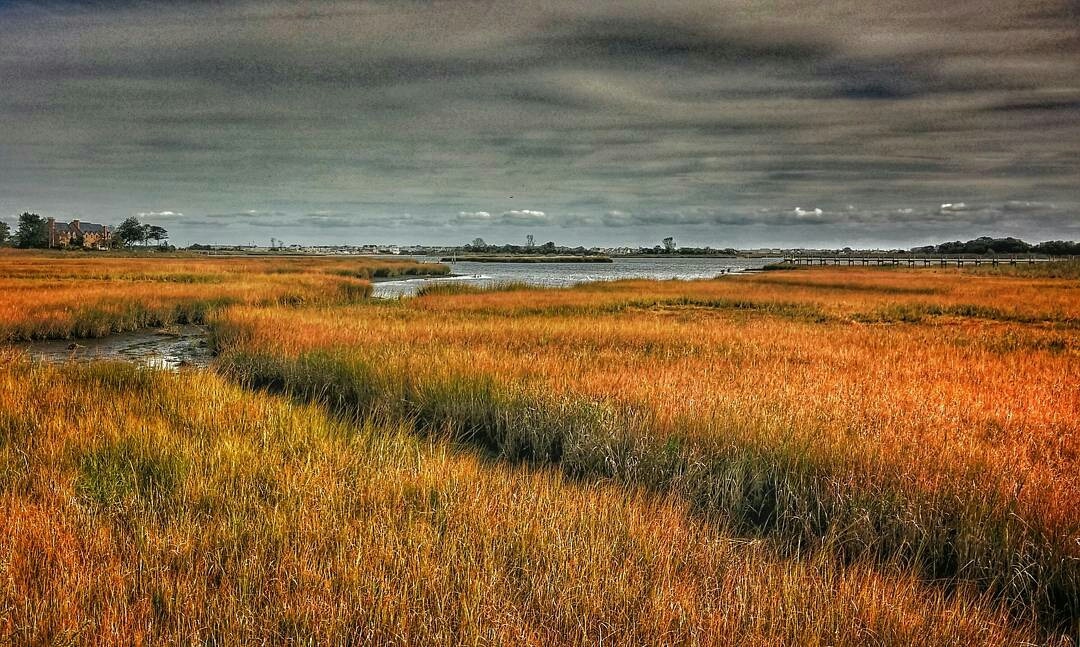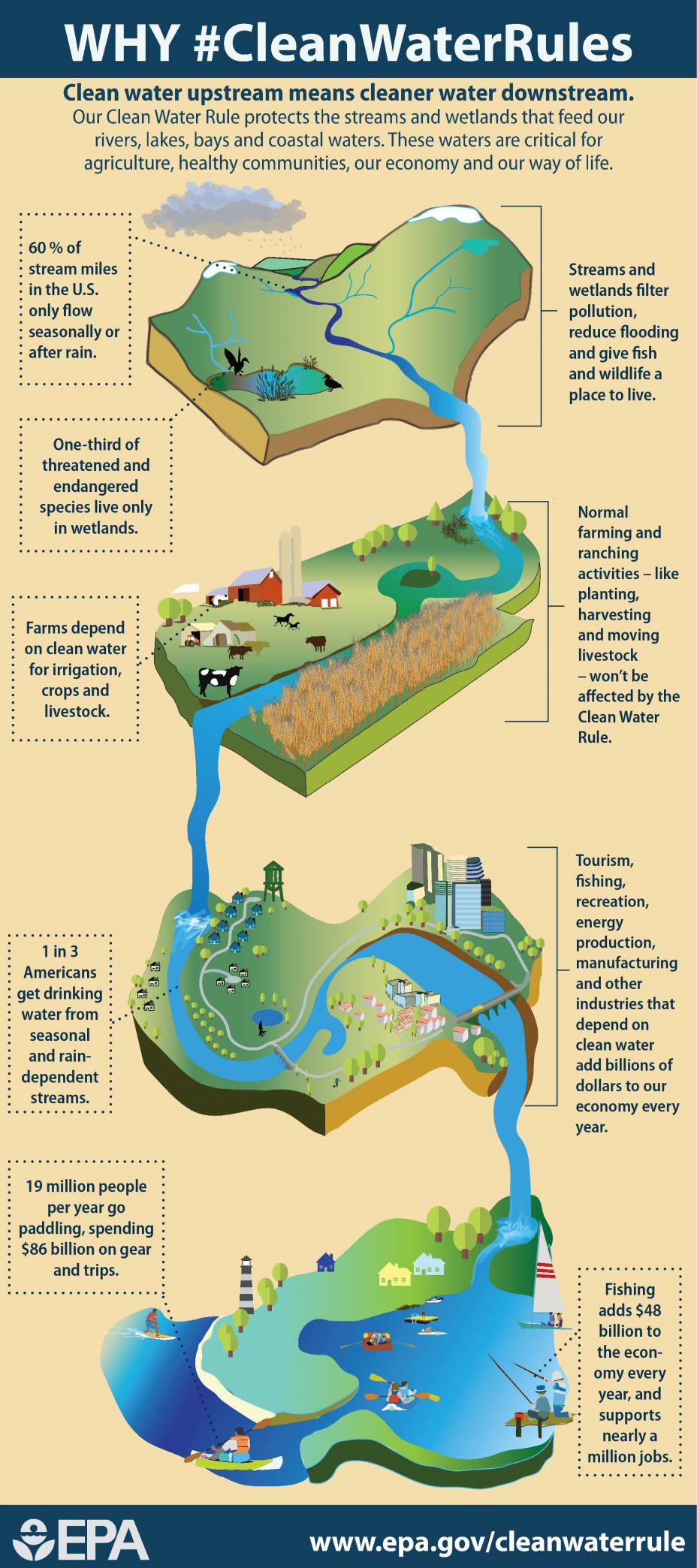|
On Tuesday, June 21, Environmental Protection Agency Administrator Scott Pruitt announced that the Trump administration has begun the formal process to end the Clean Water Rule. We need your help to stand against this change, which favors polluters over the people of the United States. Why Should You Care?
The Clean Water Rule was developed in 2015 by the EPA and Army Corps of Engineers to help clear up confusion about what US waterways were protected by the 1972 Clean Water Act. Thanks to this rule, the Clean Water Act’s oil spill prevention program, its industrial discharge control program, its polluted water cleanup program, and many more safeguards, apply to smaller bodies of water. The rollback would likely have major implications for the nation, but especially coastal wetlands. The change would disable federal pollution safeguards for streams unless they are “relatively permanent,” and exclude wetlands that do not have a “continuous surface connection” to other covered waters. The could mean the loss of pollution protections for the nearly 60% of streams in the lower 48 states that don’t flow year-round—almost 2 million miles of streams. It also could mean the end of Clean Water Act protection for countless wetlands—perhaps even most of the 110 million acres in the continental U.S.—because they don’t have a surface connection to “relatively permanent” waters. Ultimately, the change could endanger drinking water for 117 million Americans. Keep in mind that this change goes against science and public sentiment. Here's what national polling shows regarding support for the Clean Water Rule:
Why Attack Now? In February, President Trump signed an executive order for review of the Clean Water Rule to ensure it "promotes economic growth" and "minimizes regulatory uncertainty." However, the EPA announcement is seen an effort to end the rule before US courts can independently review its basis in science and law. Soon after it was created, some business and agricultural groups sought to have it blocked, saying it placed an undue burden on them and unfairly limits the use of private land. Once the Clean Water Rule is gone, the EPA is expected to create a new rule that could drastically undermine the protections afforded by the Clean Water Act. An executive order signed in March called for similar action on the the Clean Power Rule, which regulates carbon emissions by US power plants and required federal officials to consider the impact of climate change when making decisions. Tuesday's announcement comes as debate begins on the President's proposed budget for 2018, which attacks every single federal program that helps to protect, manage, and improve the environment of our oceans, lakes, rivers and bays. Under the President's plan these programs — which protect the environment and millions of jobs — will be eliminated or have their funding reduced so severely they will be rendered ineffective. According to that proposed spending plan, money allocated to the EPA would be cut by more than 30 percent. What Can You Do? Tell your Senators and Representative you oppose the EPA’s rollback of the Clean Water Rule. The EPA and Army Corps have proposed to repeal safeguards for water bodies that feed the drinking water for more than 1 in 3 Americans, filter pollutants, absorb floodwaters, and provide habitat for wildlife across the nation. We can't let this happen. While the ending the Clean Water Rule doesn't require legislative action, our lawmakers can stop it. Find your Representatives and Senators, along with their office numbers, here. Delaware – Clean Water Rule Fact Sheet New Jersey – Clean Water Rule Fact Sheet New York – Clean Water Rule Fact Sheet Pennsylvania – Clean Water Rule Fact Sheet Comments are closed.
|
Archives
July 2024
Categories
All
|



